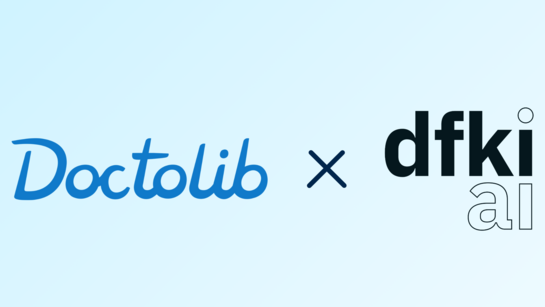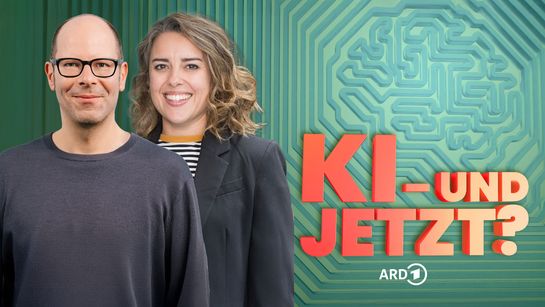
Speech and Language Technology
DFKI’s Speech and Language Technology Department (SLT) addresses the use of AI for analysing, generating and interacting through spoken and written language. Its focus is on information extraction from written text and from spoken language, on knowledge technologies, and on interactive chatbots. Regarding information extraction, the main contributions are in the field of training on sparse data (addressed through sequential transfer learning (e.g., by Alt, 2020) or by multitask-learning (e.g., by Mittag, 2021), as well as on explainable AI (e.g., by Schwarzenberg, 2021). Regarding knowledge management, SLT brings together large multilingual resources in the European Language Grid and other European as well as national projects, focussing on data curation as well as research data management techniques. Regarding chatbots, SLT concentrates on the quick bootstrapping of chatbots from knowledge graphs, also for industrial applications, as well as on the simulation of interaction behaviour. A main strength of SLT is its use of crowdsourcing for data generation, the creation of hybrid human-machine intelligence processes, as well as its focus on evaluation methodologies to which SLT constantly contributes with scientific publications as well as with international standards. Applications of its technologies are in the fields of medicine, mobility, law, as well as machine translation.
Text Analytics
The field of Text Analytics aims to understand how humans use natural language to convey information and knowledge. The field develops techniques and models that enable computer programs to extract information and knowledge from unstructured texts, in order to make these available in structured form for further processing by computerized applications. Our work in this area is centered around core research on domain adaptation, learning in low-resource settings, reasoning over larger contexts, continual learning, and multilingual models; in domains such as health/medicine, industry, and mobility. To this end, we combine deep linguistic analysis with state-of-the-art machine learning and neural approaches to NLP.
Dialog & Chat
Innovations such as dialog and chat technologies enable people to talk or chat with computers in natural language. Thus, computers are both able to understand natural language and respond in natural language. Amongst others the Speech and Language Technology Lab focuses on modular dialog systems in the field of dialog and chat: How can we build dialog systems that are composed of multiple sub-dialog systems? Modular systems have several advantages: Dialog systems can be easily reused in other contexts; they can be composed of different technologies. Additionally, modular technologies promise new possibilities for dialog management and multitasking in dialogs.
Linguistic Data Science
Linguistic Data Science deals with the empirical aspects of linguistics, e.g., corpus annotations, or statistical evaluation of speech and language data with the help of linguistic methods.
An important topic of this research area that the Speech and Language Technology Lab is focussing on is the question how to characterize the quality of text.
Language, Data and Knowledge Technologies
Within the topic field Language, Data and Knowledge Technologies we apply a holistic approach and actively work on all involved levels of technological components that are necessary to address a certain use case with a prototypical language technology demonstrator or with a deployed system ready for production use, especially with regard to applications in the professional context of digital content curation (curation technologies). Among others, we use rule-based, data-driven neural and knowledge-based methods that combine their respective advantages by bridging between the symbolic and sub-symbolic levels. Other areas of work are the development and use of language technology platforms and the integration of our research work in an emerging strategic agenda for technology-enabled multilingualism and digital language equality in Europe. We are also involved in national and international standardisation activities around language and knowledge technologies as well as artificial intelligence at large.
XplaiNLP
The XplaiNLP group at TU Berlin and DFKI focuses on the development and application of advanced natural language processing (NLP) techniques, with an emphasis on explainability (xAI), human-computer interaction (HCI), and legal alignment (AI Act, DSA). The group applies Large Language Models (LLMs) to address challenges of fact-checking, knowledge enrichment, and retrieval, particularly in fields like mis- and disinformation detection, hate speech, and medical data processing. Leveraging explainable AI, XplaiNLP seeks to improve the transparency and accountability of AI systems, ensuring their outputs are interpretable by both experts and non-experts. The group also explores the legal and ethical dimensions of AI systems, contributing to the responsible deployment of AI in society.
Further information: topic field XplaiNLP
Interested in a collaboration?
Your contact person for a joint AI project:
Dr. phil. Sven Schmeier
Sven.Schmeier@dfki.de
Phone: +49 30 23895 1815
Contact
Office:
slt-sek@dfki.de
Tel.: +49 302 3895 0
Fax: +49 302 3895 1810
Deutsches Forschungszentrum für Künstliche Intelligenz GmbH (DFKI)
Speech and Language Technology Lab
Kesselhaus in der Lanolinfabrik
Salzufer 15/16
10587 Berlin
Germany


